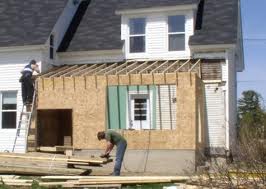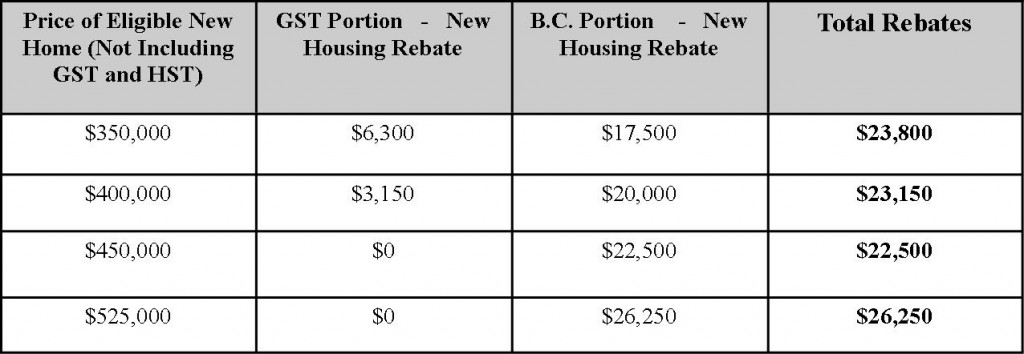Important Information If You Are Planning To Renovate Your Kamloops Home
This article appeared in the Kamloops Daily News on April 5th, 2011 and was written by Robert Koopmans. There are many things to keep in mind when renovating your home in Kamloops. This article explains two prevalent issues that I often come across (outstanding permits and liens) and can easily be prevented.

That’s often a mistake, say two local lawyers, as there are many statutes governing differing aspects of the construction industry — failure to be aware of them can prove costly.
Hal Hicks and Sam Dabner, both associate lawyers at Fulton and Company in Kamloops, spoke to a crowd at the Canadian Home Builders Association’s annual home show Saturday, giving people a sense of the kinds of situations when they need to be aware of the law, and when they need to consult a lawyer.
Dabner said one of the big areas people often run into trouble is with permits.
The City requires building permits be sought for all kinds of new construction, as well as renovations that alter the structure of the home.
Any changes to houses that alter internal systems — plumbing and electrical, for example, or modify walls, rooms or the layout — will inevitably require a building permit. It’s possible finished work will also need to be inspected.
As an example of how stringent the permit process really is — Hicks recently obtained a permit in order to install a new dishwasher in his house.
The reason for permits? The City wants to ensure that houses in Kamloops are safe and conform with B.C.’s building codes.
“It’s good public policy,” said Dabner.
And what happens if you don’t get one? Dabner said the City can issue stop-work orders on projects, even if they are already underway. People can also be told they must return their house or structure to its condition before the work began. If work is done without a permit, homeowners can see their insurance affected. Real estate sales documents require owners to declare improvements done without a permit.
The easiest way to avoid problems with the City — ask quetions, said Dabner. There is no need to call a lawyer. Call City Hall. The building department is always prepared to help people sort out when or if they need a permit.
Another area of home ownership that frequently sees people in need of legal help is when they hire contractors or others to do improvements.
The renovation market has been growing by leaps and bounds in recent years and inevitably, not everyone is happy with the work done, its cost or how long it took to get it done.
In these kinds of situations, contracts rule supreme, both lawyers agreed. There is big value in written contracts, as long as the contract is well understood by both parties. People must be careful what they sign to ensure they are not giving away avenues of recourse should something go wrong.
Unfortunately, much work in homes — especially lower cosy renovations — are often done with nothing more than a verbal agreement. At the least, people should always get a written quote specifying how much a job will cost and how long it will last, Dabner said.
If a dispute arises involving sums less than $25,000, small-claims court can prove a worthwhile option. The court is designed with unrepresented litigants in mind. Most cases are settled long before trial, when parties meet with judges in settlement conferences.
“If someone’s (claim) is way off base, the judge will usually tell you you are not likely to win or are going to lose,” Dabner said.
There is one last area of the construction industry many homeowners are not aware about, an area that bears great potential to cause grief.
B.C.’s Lien Act is designed to protect contractors or suppliers from doing work or providing materials and not getting paid. The act allows people who are owed money for work or materials to place a lien on a property’s title.
Liens can cause homeowners problems, by preventing them from taking measures that involve changes to title — the sale of property being the most common.
Hicks said the most common scenario that affects homeowners is when they hire a contractor to do work but that contractor fails to pay his sub-contractors or suppliers.
A lien is placed on title by those who are owed money by the contractor, Hicks said, and the homeowner is stuck, unable to clear their title until the debt is paid.
The remedy? Holdback. The act allows homeowners to withhold 10 per cent of a final bill for a maximum of 55 days, in order to protect against the possibility of seeing titles locked by lien.
In such cases, holdback money can be diverted to unpaid sub-contractors and suppliers. Keeping holdback on the bill protects homeowners from paying twice for the same work, or seeing their titles locked up in protracted disputes between other parties.
The bottom line — homeowners who are ignorant of the laws that govern the construction industry run the risk of bearing costs or other down the road. When in doubt, ask a lawyer, both agreed. The cost of seeking advice early will always be more cost-effective than hiring a lawyer to sort through problems after the fact.

